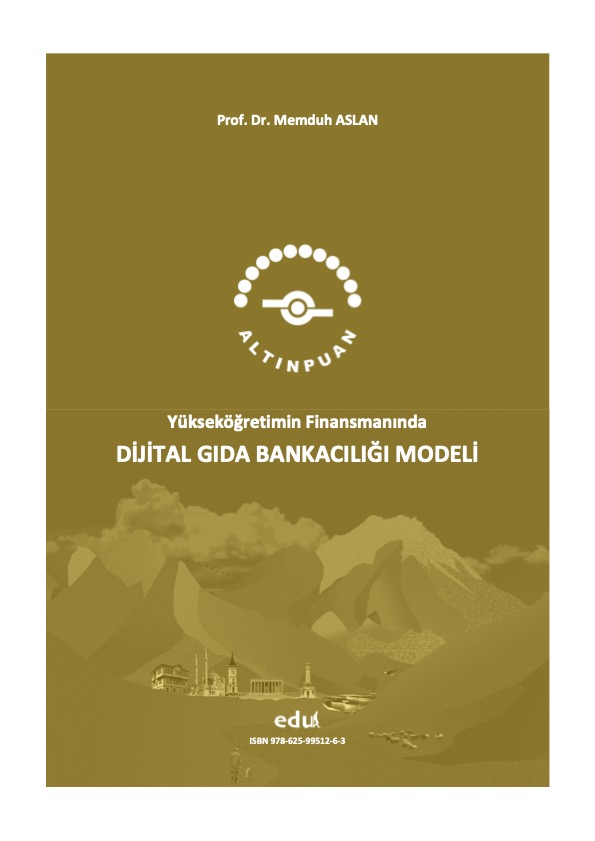YÖNETİCİ ÖZETİ
Dijital Gıda Bankacılığı Modeli
Dijital Gıda Bankacılığı, e-tedarik platformu üzerinden yoksulluk yaşayan kişilerin ihtiyaçlarının dijital ortamda karşılandığı yeni nesil gıda bankacılığı modelidir. Estra® algoritmaları e-tedarik platformunda tüm süreçleri izlenebilir ve otomatik işleyecek şekilde modeli uygulanabilir hale getirmektedir. İhtiyaçlar üye tedarikçilerin sunduğu mal ve hizmetler arasından belirlenmektedir. İhtiyaçlar ölçeklenerek listelenirken, bağışçı ile ihtiyaç sahibinin karşılıklı kimlik bilgileri gizlenerek buluşturulmaktadır. Tüm ürün veya hizmetler dijital olarak sertifikalandırılarak Gıda Bankası üzerinden öğrenciye iletilmektedir. Teslimat ile fatura ve ayni bağış alındı belgesi elektronik olarak düzenlenmektedir. Tüm varlık ve kaynaklar dijital sertifikaları ile takip edilerek ilgili taraflar bilgilendirilmektedir. Sistem ödeme, faturalama ve sivil toplum bildirim sistemleriyle entegre edilmektedir.
Model ile ihtiyaçlar ölçeklenerek, her ekonomik güçteki bağışçının bağış yapabilmesi ve yardımlaşmanın manevi hazzını yaşamasına olanak verilmektedir. Her teslimat ile tedarikçi farklı kriterler dikkate alınarak ihtiyaç sahibi tarafından derecelendirilerek hizmet ve ürün kalitesinin de artırılması hedeflenmektedir. Tedarikçi işyerlerinde teslimat yapılmasına olanak sağlanarak toplama, ayırma, depolama ve ulaştırma gibi yüksek operasyon maliyetleri minimuma indirilmektedir Model ile ıslak, taze veya pişmiş ürünleri bozulma riskleri olmadan erişilebilir hale getirilmektedir. Sistem, kıyafetleri deneyerek teslim alma gibi ihtiyaçların kişisel özelliklere uygun karşılanmasına da olanak sağlayarak İhtiyaç sahiplerinin elde edeceği marjinal faydayı yükseltmektedir. Model her türlü ihtiyacı karşılanabilir hale getirilmektedir. Bağışın, teslim anında gerçekleşmesini sağlayarak tüm kaynağın israf edilmeden ve kayba uğratılmadan kullanılmasını sağlayarak kaynak verimliliğini artırmakta, yardımların ihtiyaç sahipleri arasında adil ve dengeli dağılımı sağlanmaktadır.
İhtiyaçlar platforma üye tedarikçilerden piyasa koşullarından karşılanmakta ve ortaya çıkan katma değerin ihtiyaç sahiplerinin yaşadığı bölgede kalması sağlanarak yerel kalkınma desteklenmektedir. Tedarikçiler henüz satışlarını gerçekleştirmeden gelecek talebi öğrenebilmekte ve kendi tedarik sistemlerini düzenleyerek planlı üretim yapabilmektedirler. Tedarikçiler, teslimatın hemen ardından ödemelerini almakta ve işletme sermaye ihtiyaçları minimize edilerek finansman giderleri düşürülmektedir. Kaliteli ürün veya hizmetin daha düşük maliyetle sunularak daha uygun fiyatlarla piyasaya sunulması da desteklenmektedir.
Sistemde, bağışçının avans ödemesi dijital kupür haline getirilmekte ve desteğinin amacına uygun kullanılmasını sağlanmaktadır. Sistemin, Ödeme, elektronik fatura ve otoritenin diğer sistemlerine entegrasyonu ile kayıtlı ekonomiyi desteklemekte, izlenebilirlik özellikleri ile de kötüye kullanım engellenebilmektedir. Sistem, otoriteye tüm süreci detaylı izleme ve denetlenme olanağı vererek sosyal ve ekonomik politika belirleyebilmesini desteklemektedir. Dijital Gıda Bankacılığı modeli Birleşmiş Milletlerin 17 Sürdürülebilir Kalkınma Amaçlarının (SKA) 12’sini, Türkiye Cumhuriyeti 12. Kalkınma Planı’nın %7’sine katkı sağlamaktadır.
EXECUTIVE SUMMARY
Digital Foodbanking Model
Digital Food Banking is a new generation food banking model where the needs of people living in poverty are met digitally through an e-supply platform. Estra® algorithms make the model applicable on the e-supply platform in a way that all processes are traceable and automated. Needs are determined among the goods and services offered by member suppliers. While the needs are scaled and listed, the mutual identity information of the donor and the needy is hidden. All products or services are digitally certificated and delivered to the needy through the Food Bank. Upon delivery, invoices and goods donation receipts are issued electronically. All assets and resources are tracked with digital certificates and the relevant parties are informed. The system is integrated with payment, invoicing and civil society notification systems.
With the model, needs are scaled so that donors of any economic power can make donations and experience the spiritual pleasure of cooperation. With each delivery, the member supplier is rated by the needy based on different criteria, aiming to increase service and product quality. By enabling delivery at member merchants, high operational costs such as collection, sorting, storage and transportation are minimized. The model makes wet, fresh or cooked products accessible without the risk of spoilage. The system increases the marginal benefit to the needy by enabling them to meet their needs according to their personal characteristics, such as receiving clothes by trying them on. The model makes it possible to meet all kinds of needs. By ensuring that the donation is realized at the time of delivery, it increases resource efficiency by ensuring that the entire resource is used without waste and loss, and a fair and balanced distribution of aid among those in need is ensured.
Needs are met from the member suppliers of the platform at market conditions and local development is supported by ensuring that the resulting added value remains in the region where the needy people live. Suppliers can learn about future demand before they make their sales and can organize their own supply systems and make planned production. Member suppliers receive their payments immediately after delivery and their financing expenses are reduced by minimizing their working capital needs. Providing quality products or services at lower costs and offering them to the market at more affordable prices is also supported.
In the system, the donor’s advance payment is converted into a digital voucher and ensures that the support is used for its intended purpose. The integration of the system with payment, electronic invoice and other systems of the authority supports the formal economy and traceability features of the system prevents misuse. The system supports social and economic policy-making by allowing the authority to monitor and audit the entire process in detail. The Digital Food Banking model contributes to 12 of the 17 Sustainable Development Goals (SDGs) of the United Nations and 7% of the 12th Development Plan of the Republic of Turkey.
